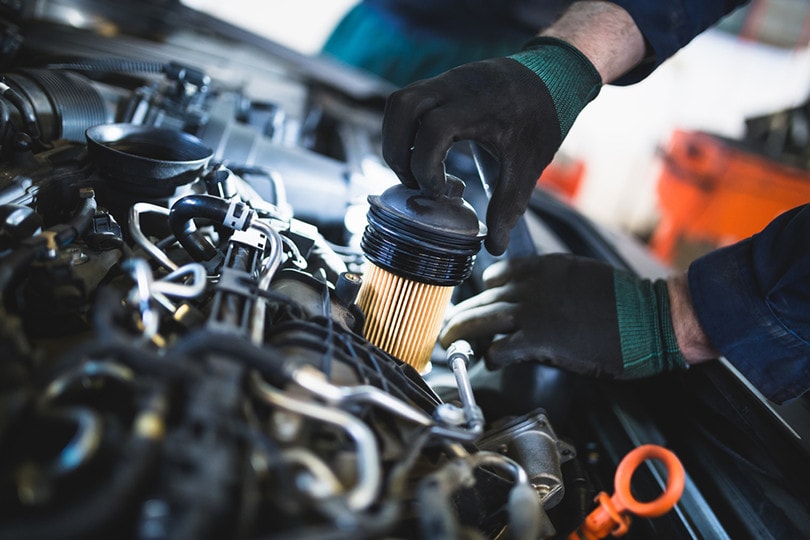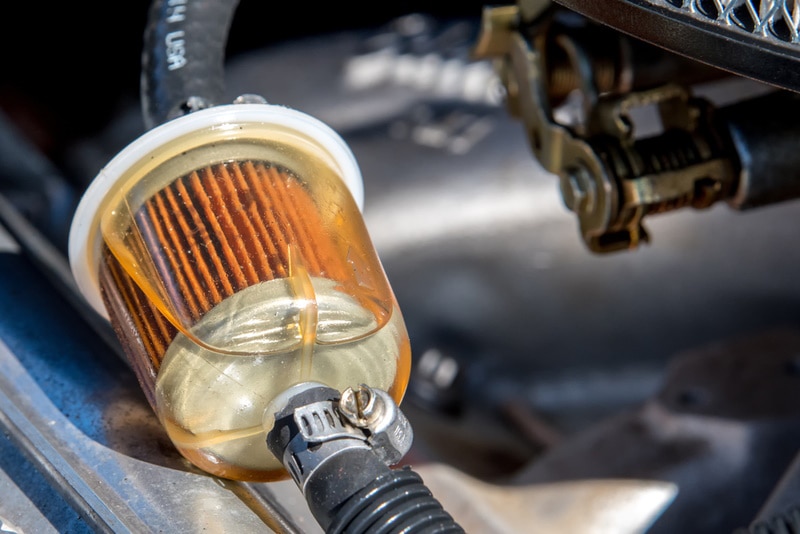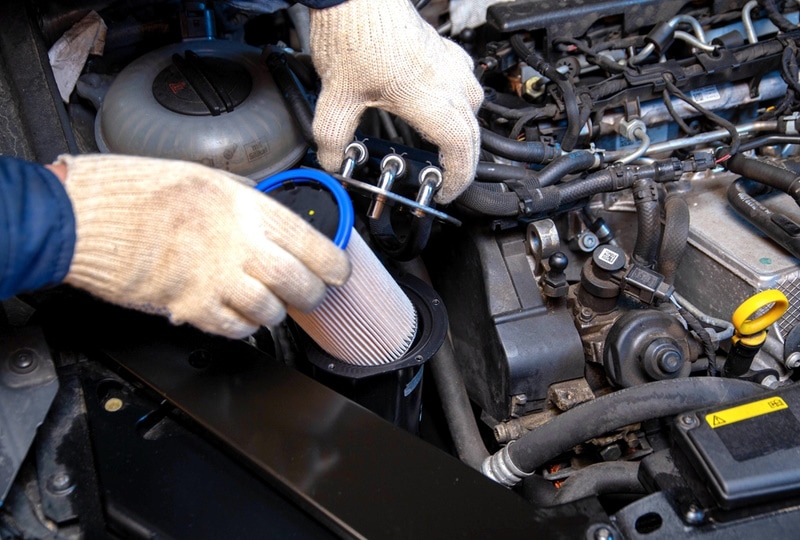How Often Do I Replace My Fuel Filter? Signs, Facts & FAQs
-
Pete Ortiz
- Last updated:

A fuel filter is one of the most vital components shielding your engine from damage, but it will eventually become too dirty to fulfill its duties. Fuel filters need replacement every 20,000–30,000 miles in general, but many newer vehicles can go over 60,000 miles without filter issues.
A simple thing like a fuel filter can get confusing when you realize the differences between vehicles. We’ll help you stay on top of your vehicle’s service schedule by detailing how often you should replace your fuel filter.
What Does a Fuel Filter Do?
The fuel filter sits in different locations from one vehicle to the next, but it always falls between the fuel tank and the engine. In newer cars, you’ll typically find it in the tank where it meets the fuel line, and some vehicles even have a secondary filter somewhere in the fuel line itself. Other cars, particularly older models, have a fuel filter closer to the engine, making it accessible under the hood.
The filter is a small cylinder that removes impurities like rust and sediment from the gasoline before it arrives at the engine. It maintains a steady flow of fuel by preventing clogs, which is particularly critical in the tight gaps in the fuel injectors. Over time, the filter will get overly dirty and clog the system, requiring a replacement.

What Happens if You Don’t Change Your Fuel Filter?
If you don’t change your fuel filter when it’s dirty, performance will suffer first, and your vehicle will likely break down eventually. Dirty filters will make starting your car a challenge, and if it does start, you’ll begin to notice problems on the road. Some common issues you may experience while driving include:
- Vibrations while idling
- Engine stalls
- Reduced acceleration, particularly up hills
- Rough driving at slow speeds
- Check engine light comes on
In the worst-case scenarios, your car may even shut down because too much back pressure has built up in the fuel pump. But even before those extreme symptoms pop up, a dirty fuel filter will lower your car’s fuel economy and cost you more money.
How Often Do I Replace My Fuel Filter?
The service schedule for your fuel filter largely depends on the age of your vehicle. Older cars with accessible filters under the hood usually require fuel filter replacements every 20,000–30,000 miles. As the technology evolved, filters became more advanced, so many newer vehicles can go up to 60,000 miles before needing a replacement. Many high-end luxury vehicles can even drive over 150,000 miles on a single filter!
In modern vehicles, where the filters are part of the fuel pump, the filters should last as long as the pump. Fuel pumps last roughly 100,000 miles or more, so, fortunately, you don’t have to replace them as often as the easy-to-swap under-the-hood versions of yesteryear. These systems are best left to professionals in the service center, as you generally have to remove the fuel tank to install a part worth several hundred dollars.
The best way to find out how long your fuel filter will last is to reference your vehicle’s manual. It will detail the filter’s service life, location, and replacement procedures.

How Much Do Fuel Filters Cost?
When you change a fuel filter, the part costs roughly $10–$70, so it can be a cheap DIY project once every couple of years on an older vehicle. To have a mechanic replace it, you’ll pay for the parts cost plus labor, which costs roughly $50-$100. Including it as part of your annual service is often the most cost-efficient way of getting a fuel filter replacement.
Final Thoughts
Replacing a fuel filter is a critical recurring maintenance task that you can’t afford to overlook. You can ensure your filter lasts as long as possible by using high-quality gas and keeping your tank full, but eventually, it will be time for a new part if you want your vehicle to perform at a high level. Check your vehicle’s manual if you aren’t sure how long your filter should last, and use this guide to help you prepare for this essential component of your car’s health.
Featured Image Credit: DuxX, Shutterstock
Contents



